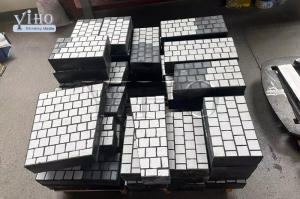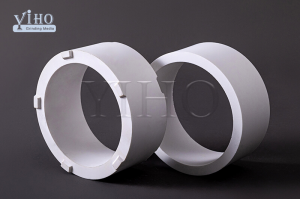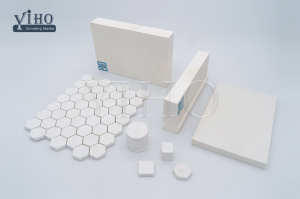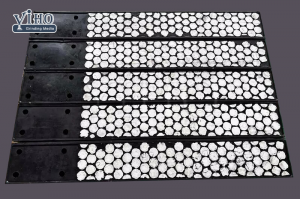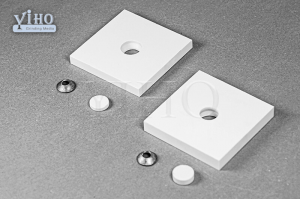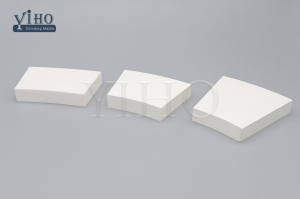Hybrid Liner Rubber Ceramic Matrix
ABOUT Hybrid Liner Rubber Ceramic Matrix
Joined using a special process, the Hybrid Liner combines two liner materials and their favorable properties. The interior is made of polyurethane and protects the residual limb and bony structures thanks to its shock absorbing characteristics. At the same time, it ensures optimum pressure distribution across the entire residual limb, both for passive and active generation of the vacuum. The outside of the liner and the integrated vacuum flap are made of silicone, proven in everyday use thanks to its robustness. This is particularly important when the vacuum flap is folded over the inner socket to create an airtight seal for the system.
Hybrid Liner Rubber Ceramic Matrix Application
On the subject of abrasion with respect to rubber linings, the following statements must be considered.
1- There are two types of abrasion one may encounter, impingement and sliding.
2- Impingement abrasion occurs when particles strike the surface of the rubber (or any other surface).
3- Sliding abrasion occurs when another surface slides across the rubber.
4- In virtually every case the abrasion can be expected to be a combination of impingement and sliding.
5- Predominantly impingement abrasion occurs in chutes, sandblast hose and anywhere rebound is observed.
6- In the impingement process, particles hit the surface and any stresses produced are distributed evenly if the rubber yields easily, especially when the particles strike at a 90° angle to the surface.
Materials of Ceramics (Alumina + Reaction Bonded Silicon Carbide Tiles)
|
Category |
92% Al2O3 |
95% Al2O3 |
|
ZrO2 |
/ |
/ |
|
Density(gr/cm3) |
>3.60 |
>3.65g |
|
HV 20 |
≥950 |
≥1000 |
|
Rock Hardness HRA |
≥82 |
≥85 |
|
Bending Strength MPa |
≥220 |
≥250 |
|
Compression strength MPa |
≥1050 |
≥1300 |
|
Fracture Toughness (KIc MPam 1/2) |
≥3.7 |
≥3.8 |
|
Wear Volume (cm3) |
≤0.25 |
≤0.20 |
| Silicon Carbide Data(RBSiC) | ||
|
Index |
Value |
Test result |
|
Sic |
/ |
≧90 |
|
Temperature |
℃ |
1380 |
|
Specific Density |
g/cm3 |
≧3.02 |
|
Open Porosity |
% |
<0.1 |
|
Modulus of elasticity: |
Gpa |
330Gpa (20℃) 300Gpa(1200℃) |
|
Moh’s Hardness |
/ |
9.6 |
|
Bending strength |
Mpa |
250(20℃)/ 280 (1200℃) |
|
Compression Strength |
Mpa |
1150 |
|
Coefficient of thermal expansion: |
/ |
4.5K^(-3)*10^(-5) |
|
Coefficient of thermal conductivity: |
W/m.k |
45 (1200℃) |
|
Acid Alkaline -proof |
/ |
Excellent |


